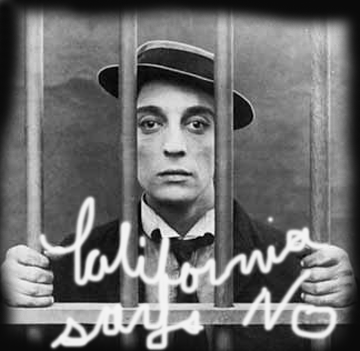
In a well-reported story, the AP’s Deborah Hastings finds that “States pull back after decades of get-tough laws”—but not California.
Here’s how it begins:
For the last four decades, the laws of the land were all about dropping the hammer on crime by locking away criminals for a very long time.
Some carried scary names like “Three Strikes and You’re Out,” as in cast out of society. The harshest penalties for drug offenders, the Rockefeller laws, were named after a New York governor battling a 1970s heroin epidemic.
Nearly half the country and the federal government have adopted some kind of hardcore laws, while “get tough on crime” became the mantra of politicians running for everything from the local city council to the president of the United States.
The public, too, was enamored. The laws promised to make life safer in increasingly unsafe times by putting away bad guys and hiding the keys for years — no more slaps on the wrist, no matter if the ultimate offense was having drugs in your pocket or stealing golf clubs.But after cracking down and incarcerating hundreds of thousands, cash-strapped states including New York, Kentucky and Kansas are pulling back. They face an uncommon confluence of dire economics and prisons bursting at the seams and several have changed, in whole or in part, their stances on hard punishment.
Their reasons: the get-tough laws didn’t always work….
……especially when it came to slowing recidivism, the revolving door of prisoners who get out, mess up again, and come back. There were legal challenges, and questions about whether the punishment always fit the crime.
And of course, there’s the money. In tough economic times, the expensive laws are increasingly being deemed expendable.
Yet in California, which has led the way with tough-guy laws, no one is budging:
“California has just gone crazy with increased penalties,[Barry Krisberg of the National Council on Crime and Delinquency] said. “It’s the worst-case scenario in terms of harsh sentencing policies being supported by both the public and the legislature. It’s the third rail — people don’t want to touch it.
”

no more slaps on the wrist, no matter if the ultimate offense was having drugs in your pocket or stealing golf clubs.
As a victim of the latter crime, I suggest that people who steal golf clubs should have to repay victims and society by having to caddy every day of their sentences, with the stipulation that if they run off with the clubs while caddying that they be forced to retrieve golf balls from the golf course lakes wearing cement shoes.
The get-tough then go-easy positions on sentences is just an example of extremes breeding extremes.
Draconian sentences like three strikes = life aka The Big Bitch law, for crimes as petty as stealing a bicycle or a pie off a window sill, also serve as a reminder to the populace of a country that Justice is controlled by the powers that be, who strut and primp before their concerned fellow ruling class cronies and terrorize the proles into a submissive posture, and it’s also a hellofa slick way to make lot’s of money.